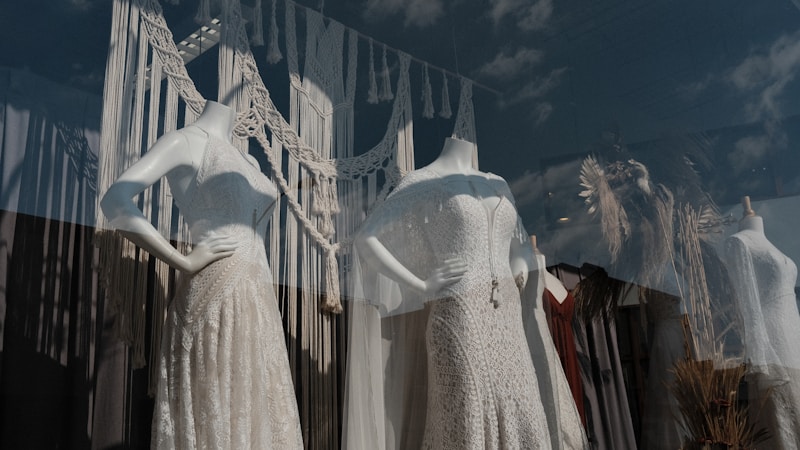Crafting the Ideal Wedding Shopping Schedule: Your Ultimate Guide
Planning a wedding can often feel overwhelming, especially when it comes to shopping for everything from the dress to the decor. However, creating an ideal wedding shopping schedule can make this process more manageable and enjoyable. In this article, we will discuss how to effectively plan your wedding shopping, including key timelines, essential items, and tips to ensure that your wedding day is everything you have dreamed of.
Understanding Your Timeline
When it comes to wedding shopping, timing is everything. Different items require different amounts of time for selection, ordering, and delivery. A well-defined timeline helps ensure that you don’t end up scrambling at the last minute. Below is a general shopping schedule based on various categories:
| Shopping Category | Ideal Shopping Timeframe |
| Wedding Dress | 9-12 months before the wedding |
| Bridal Accessories | 6-8 months before the wedding |
| Venue Decor | 5-7 months before the wedding |
| Flowers | 4-6 months before the wedding |
| Invitations | 3-5 months before the wedding |
| Wedding Favors | 2-3 months before the wedding |
| Bridal Party Attire | 6-8 months before the wedding |
| Catering & Cake | 3-4 months before the wedding |
| Groomswear | 2-3 months before the wedding |
| Beauty & Grooming | 1-2 months before the wedding |
Key Shopping Categories
Knowing what to shop for is equally important as knowing when to shop. Here’s a breakdown of key categories for your ideal wedding shopping schedule:
1. Wedding Dress
Your wedding dress is one of the most significant purchases you will make, so starting early is essential. Spend time researching styles, fabrics, and designers. Schedule appointments at various bridal shops to try on different dresses and don’t forget to bring along family or friends for input!
2. Bridal Accessories
Once you’ve selected your dress, you can focus on accessories such as veils, jewelry, and shoes. These elements are crucial in complementing your dress and enhancing your overall bridal look.
3. Venue Decor
Choosing how you want to decorate your venue is vital. Research themes and color palettes. Consider hiring a wedding planner, as they can connect you with vendors and help you stay within your budget.
4. Flowers
Flowers add a beautiful touch to your wedding day. Meet with a florist to discuss your ideas, favorite blooms, and budgets early to secure seasonal flowers for your big day.
5. Invitations
Your wedding invitations set the tone for the event. They should reflect the style and formality of your wedding. Be sure to send them out 6-8 weeks before the big day to allow guests ample time to RSVP.
6. Wedding Favors
Wedding favors are a nice way to thank your guests. Start early to find something meaningful that fits within your budget. Customized items can make your wedding even more memorable.
7. Bridal Party Attire
Choose attire for your bridesmaids and groomsmen early. This ensures everyone has enough time for fittings and alterations, enhancing the overall aesthetic of your wedding party.
8. Catering & Cake
Food and cake are focal points of any wedding reception. Schedule tastings and meetings with caterers months in advance to ensure you find the perfect menu.
9. Groomswear
Don’t forget about the groom! Start shopping for suits or tuxedos a few months before the wedding. This includes fittings and any necessary alterations to ensure a perfect fit.
10. Beauty & Grooming
Finally, prioritize your beauty and grooming appointments closer to the wedding date. Schedule trials for hair and makeup to see how your overall look will come together.

Tips for Staying Organized
Creating an ideal wedding shopping schedule is not just about what to buy and when; it’s also about staying organized. Here are some tips to help you manage your schedule:
1. Use a Wedding Planning App
Consider using wedding planning apps that offer checklists and timelines. This can help you visualize your shopping schedule better and set reminders for deadlines.
2. Keep a Budget
Establish a budget early on for each aspect of your wedding and stick to it. Being mindful of your finances will help streamline decisions.
3. Communicate with Your Partner
Make wedding shopping a collaborative process with your partner. Discuss preferences and decisions together for a more cohesive experience.
4. Plan for Flexibility
Not everything may go as planned. Be ready to adjust timelines as necessary while keeping your overall goals in mind.
5. Take Care of Yourself
Planning can be stressful, so make sure to set aside time for self-care. Couples often forget about their wellbeing amidst the hustle of wedding preparations.
Conclusion
Creating an ideal wedding shopping schedule is essential in making your wedding planning a joyful experience rather than a stressful one. By outlining key timelines, essential shopping categories, and tips for organization, you can step into your wedding day feeling prepared and excited. Remember, while time and planning are essential, the most important thing is to enjoy the journey together as a couple.
Whether you are searching for the perfect wedding dress or planning intricate details, keeping this shopping schedule in mind will help you stay organized, save time, and ensure that every element of your special day is curated to perfection.